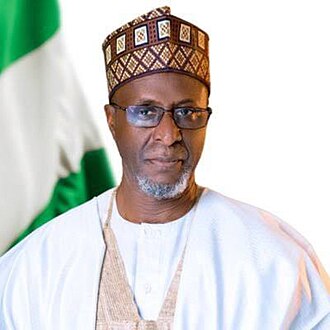The Federal Ministry of Environment and its affiliated agencies presented their budget proposals for the 2025 fiscal year to the House of Representatives Committee on Environment, emphasizing the critical need for increased funding to effectively address environmental challenges facing the nation. The budget defense session, held on Thursday, saw the ministry and agencies, including the National Park Service, Environmental Health Council of Nigeria (EHCN), National Oil Spill Detection and Response Agency, and the Forest Research Institute of Nigeria, review their 2024 performance and outline their projections for the upcoming year. The overarching theme of the session was the imperative to secure adequate financial resources to bolster the nation’s environmental protection and management efforts.
The Permanent Secretary of the Ministry of Environment, Mahmud Kambari, articulated the ministry’s achievements while underscoring the persistent challenge of inadequate funding, which hampered the full realization of its mandate. He elaborated on various programs and initiatives undertaken by the ministry, highlighting successes in areas such as environmental conservation, pollution control, and climate change mitigation. However, he stressed that the ministry’s capacity to effectively address the growing environmental challenges and implement its strategic plans remained constrained by limited financial resources.
The Conservator-General of the National Park Service, Ibrahim Goni, provided a breakdown of the agency’s 2024 expenditure, detailing the allocation of funds for personnel, overheads, and capital projects. This detailed account aimed to demonstrate the agency’s prudent financial management and underscore the need for increased allocation to effectively manage Nigeria’s national parks, protect biodiversity, and promote ecotourism. The presentation also served to justify the request for increased budgetary allocation for the upcoming fiscal year.
However, the most pressing issue raised during the budget defense session was the severe underfunding of the Environmental Health Council of Nigeria (EHCN). The House Committee, chaired by Julius Pondi, expressed strong dissatisfaction with the lack of adequate funding for the agency, emphasizing its crucial role in preventing disease outbreaks and safeguarding public health. The committee members were particularly critical of the hardships faced by EHCN staff, including the complete lack of salaries in 2014, and questioned the Budget Office of the Federation’s rationale for excluding the agency from the budget despite its reinstatement by the Federal Executive Council.
The EHCN’s Executive Director, Yakubu Mohammed, provided a detailed account of the agency’s challenges, appealing to the committee for their intervention. He explained that the council’s exclusion from the 2024 budget was a result of a government policy that temporarily discontinued funding for regulatory health bodies, a policy that was later reversed after extensive engagement with the Budget Office and the Minister of Health. Mohammed emphasized the council’s critical role in managing health emergencies, including its contributions to curbing the Lassa fever epidemic across 21 states and its response to the Maiduguri flood disaster in 2024, efforts that earned commendation from the Borno State Government.
Mohammed presented a comprehensive budget proposal for the 2025 fiscal year, requesting N1.1 billion for capital expenditure, N264 million for overheads, and N1.7 billion for personnel costs. He argued that this level of funding was essential for the EHCN to effectively fulfill its mandate, strengthen its operational capacity, and contribute meaningfully to national health security. Chairman Pondi assured Mohammed of the committee’s support and pledged to recommend the agency’s reintegration into the budget, emphasizing the importance of fair and adequate funding for all agencies under the committee’s oversight. The committee’s commitment to addressing the EHCN’s funding challenges reflected a recognition of the agency’s critical role in protecting public health and preventing disease outbreaks. The budget defense session, therefore, served as a crucial platform for advocating for increased investment in environmental protection and public health, highlighting the interconnectedness of these vital sectors and their importance for national development.


